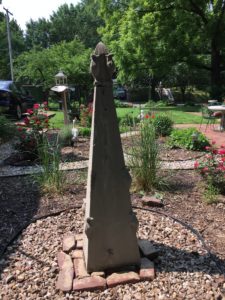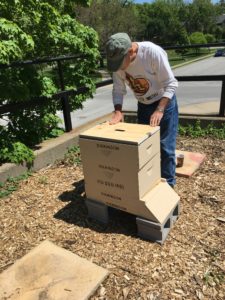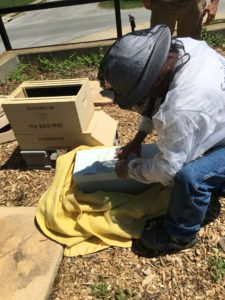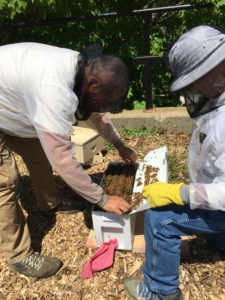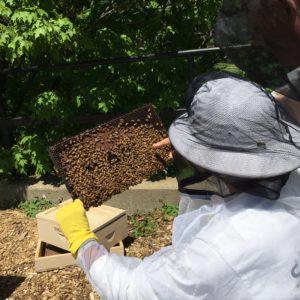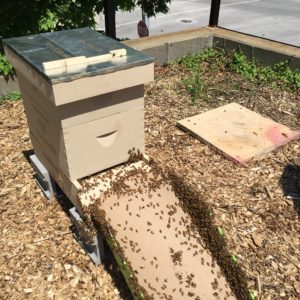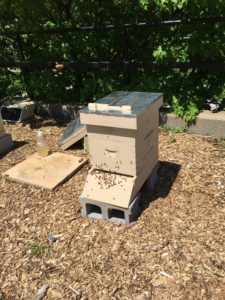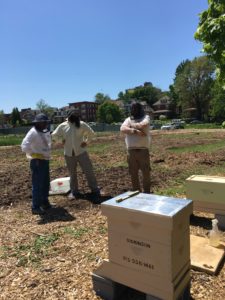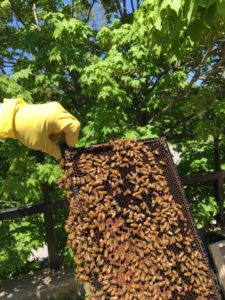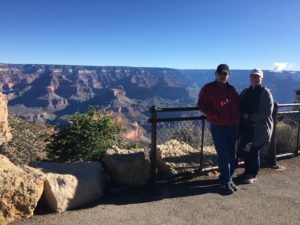Bill and I have just returned home after seventy amazing days on the island in Canada. I say returned “home” meaning Kansas City. However, the island is every bit home to us as well, and we feel the pull of it year-round. The next few blog posts will unfurl a few of the reflections inspired by this retreat to the bosom of Mother Nature, taken from my daily journal. To begin…
Here on the island, one becomes acutely aware of something we American city dwellers mostly take for granted: abundant, accessible water. Water for drinking. Water for washing. Water for wasting on lawns and flushing down toilets. Only two summers ago, Bill installed a water pump to bring up water from the lake to fill a cistern on the kitchen porch. In former days, lake water was safe to drink, but no longer. From the cistern, we fill a couple of buckets under the sink, ready access to wash water for hands or dishes. Two or three times a day, we fill an old beat-up kettle to heat water for dishwashing or a quick personal clean-up or an occasional shave. Also, directly from the pump, we fill our washing machine–a plastic trash can with a human-powered plunger for agitation.
On the kitchen porch, we keep three large containers of drinking water, drawn from the free spigot at the Orrville Library about six miles away by boat and car. (We are Seguin Township taxpayers, so this isn’t exactly “free” water. Also, neither the island nor its mainland properties where the landing is has utilities or public roads.) From these jugs, we pour clean water into the teakettle for coffee and the pitcher for drinking and ice cube trays. Yes, we enjoy the luxury of a propane refrigerator.
All day every day feels like a constant transfer of water from one container into another. This is not exactly as handy as turning on a tap, but it’s infinitely less work than hauling water in buckets up the steep rocky embankment from the lake, as had been done for decades. So water we have, and plenty of it, with very little effort. Naturally, I think often of those places around the world where this is not the case. Indeed, I’ve read that all too soon, the greater waters of the world may shift from fresh springs to salty oceans. A serious downside for every human being. For now, please be grateful for every daily drop, and mindful of how you use it.
Some of my literary experiments this year were founded in a 2002 book, An Exaltation of Forms: Contemporary Poets Celebrate the Diversity of Their Art, edited by Annie Finch and Kathrine Varnes, from the University of Michigan Press. I won’t be reproducing here most of the poems from this year’s island inspirations, as I’d like to try them out on the literary press first, and editors are fussy about having “first publication” rights. But here’s my terza rima with a nonce metrical pattern (look all that up if you care to) from early days on the island 2019.
ANOTHER SUMMER
We seem to assume the island will merely waitfor summer when we return with our loads of gear,
the time of the solstice. Thus we anticipate
the coming again of us for another year
unchanged. Yet nothing stays as it was before,
the paths overgrown, the neighbors no longer here,
the ravel of memories locked by a cottage door,
whatever survived the siege of wind and ice,
whatever a nail or screwdriver might restore.
We settle ourselves, and settle for beans and rice
we left in the cupboard, thankful to celebrate
what hasn’t been nibbled away by ants and mice.
The winter comes soon enough. It is not too late
to love what we find for now on the sparsest plate.
Barbara Loots
Blackwater Lake, Ontario
June 2019











